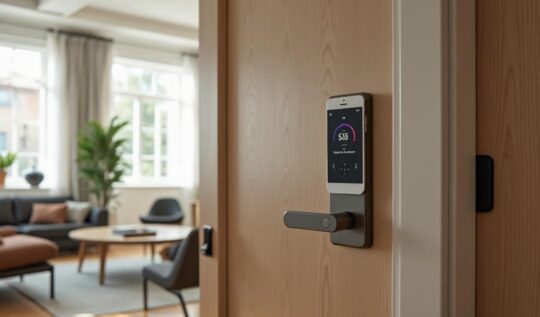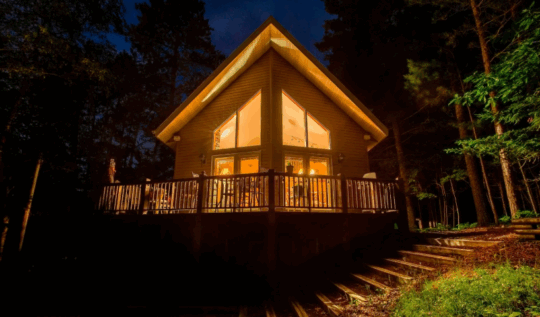Managing an Airbnb remotely has become an increasingly popular way for hosts to earn passive income while enjoying the freedom to live or travel anywhere. Whether you own a vacation rental across town or multiple properties in another state, you can still run a successful short-term rental (STR) business without being physically present. The secret lies in building strong systems, leveraging automation, and creating a dependable local support network.
In this guide, we’ll cover key strategies to help you manage your Airbnb remotely while maintaining high guest satisfaction, operational efficiency, and profitability.
Why Managing Airbnb Remotely is Possible
Thanks to smart home technology, automation software, and professional service providers, remote management has become standard practice for many Airbnb hosts. In fact, many investors buy properties out of state specifically for their rental potential, knowing they won’t need to be nearby to keep operations running smoothly.
Ultimately, your responsibilities as a host stay the same—handling guest communication, ensuring cleanliness, addressing maintenance, and pricing your rental competitively. The difference is how you manage these tasks without being there in person.
With the right structures in place, a remote-hosting Airbnb can run almost on autopilot, and here’s how.
- Automate Guest Communication
Consistent and responsive communication is one of the biggest factors in achieving 5-star reviews. But answering guest messages manually can become one of the biggest time drains for hosts.
The solution is to automate where possible:
- Pre-arrival information: Send messages that share check-in details, directions, and house rules before guests arrive.
- During-the-stay updates: Send reminders, tips, and a friendly check-in to ensure guests feel supported.
- Post-checkout notes: Thank guests for staying, request reviews, and invite them to book again in the future.
Instead of typing every message from scratch, hosts can create templates and schedule them with property management tools. Advanced platforms can even personalize replies based on guest information, ensuring messages don’t feel robotic.
2. Offer Self-Check-in with Smart Locks
Remote hosts rarely have the option of greeting guests in person. The solution? Self-check-in using smart locks or keyless entry systems.
Smart locks allow you to:
- Assign each guest a unique code valid only for the duration of their stay.
- Track check-ins and checkouts from anywhere with your phone.
- Eliminate the time and hassle of coordinating key handoffs.
To take it a step further, consider installing smart thermostats as well. These can ensure a comfortable environment for guests while minimizing utility costs by reducing energy consumption during vacancies.
3. Hire Professional Cleaners
Cleanliness is non-negotiable in the short-term rental business. Remote hosts must rely heavily on trusted local cleaners to maintain hotel-level standards between bookings.
Hiring a cleaning service with experience in vacation rentals is ideal. To ensure consistency, provide cleaners with a detailed Airbnb cleaning checklist, which can help them deliver the same high-quality results every time. Some hosts also automate cleaning schedules by integrating bookings directly with their cleaner’s calendar.
4. Build a Reliable Maintenance Team
Unexpected issues—such as leaky pipes, broken appliances, or HVAC failures—are almost inevitable. Without an on-call support system, these problems can turn into guest complaints and bad reviews.
Remote hosts should build relationships with dependable local vendors such as:
- Plumbers
- Electricians
- HVAC specialists
- Landscapers
- Handymen
Having these contacts on call allows you to handle problems quickly, even if you’re across the country.
5. Use Dynamic Pricing Tools
Pricing your Airbnb correctly can be tricky if you don’t live near your rental market. Rates fluctuate constantly based on seasonality, holidays, local events, and demand.
Dynamic pricing tools solve this by automatically adjusting your rates in real time. Benefits include:
- Maximizing revenue by charging higher prices during peak demand.
- Staying competitive during slower months with discounted rates.
- Removing the guesswork from pricing strategy.
For remote hosts, this ensures that your nightly rates stay profitable without needing hands-on adjustments.
6. Embrace Full Automation
The more you automate, the smoother your remote Airbnb operation becomes. Modern short-term rental software allows you to:
- Sync reservation calendars across platforms like Airbnb, Vrbo, and direct booking channels.
- Automate team task assignments (e.g., notifying cleaners after checkout).
- Collect guest reviews and feedback automatically.
- Handle guest communications with pre-set workflows.
Automation minimizes human error and frees up your time so you can focus on expanding your rental business—or simply enjoying passive income.
7. Create a Comprehensive Guest Book
When you’re not on-site, guests need a clear reference for house rules, instructions, and local recommendations. A well-designed digital guest book or house manual eliminates confusion, reduces repetitive questions, and enhances the guest experience.
Your guidebook should include:
- Check-in and checkout instructions
- House rules and policies (smoking, pets, noise, etc.)
- WiFi details and troubleshooting tips
- Instructions for appliances and electronics
- Emergency contacts
- Local restaurants, attractions, and transportation information
Provide both a digital version before guests arrive and a printed copy at the property. Guests will appreciate having quick access, which in turn improves reviews.
Final Thoughts
Managing an Airbnb remotely is not only possible—it’s often more efficient than handling everything manually on-site. By automating communication, installing smart technology, hiring reliable service providers, and building strong remote systems, you can create a streamlined short-term rental business that practically runs on autopilot.
With the right mix of tools and teams, hosting from a distance doesn’t just save time; it also helps scale your Airbnb business while keeping guests happy and operations smooth.




